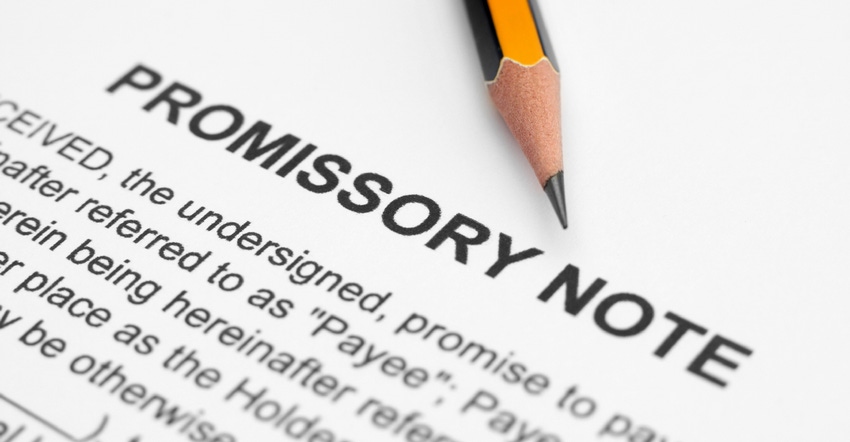January 27, 2021

A promissory note is another great tool in planning for farm and estate succession. We use these in many plans to provide options for transferring farm equipment, equalizing estate distributions and repaying loans made to family members.
A promissory note allows clients to set forth the terms of a sale. They can put provisions into their plan to calculate the sale amount, determine the interest rate, set the term for payments and state the manner payments will be made.
We often advise that farmers use a promissory note in their estate plan when they want a child or grandchild to have the option to purchase their farm equipment after their death. The terms of the promissory note are set out in their revocable trust or the will. By using this tool, the plan provides the farming beneficiary with access to the farm equipment and makes an equitable distribution of the promissory note to the non-farming beneficiaries.
If clients want to transfer equipment during their lifetime, I often recommend they use a lease agreement with a purchase option rather than a promissory note. This is done to save the client on income taxes. Lease payments are taxable income in the year they are received.
If the equipment is sold on a promissory note, all the recaptured income from depreciation will be due in the year of the sale rather then spread out over the term of the promissory note. This recaptured income is not an issue after a client is deceased because the equipment will have a step-up in basis, so there will not be recaptured income on the sale.
We also use promissory notes when a client loans money to family members. The promissory note will be distributed to the future beneficiaries according to the terms of their trust or will. This helps make equitable distributions to all beneficiaries. The client will have the option of stating how the promissory note is administered after he or she is deceased. For example, the client can state if there will be any modifications to the amount due on the note, the term of payments or the interest rate. The client is also able to state what percentage of the note will be distributed to each beneficiary.
Some clients decide to gift money rather than make a loan because they do not want to earn interest income. In this case, they can use an equalization clause in their trust or will rather than a loan to offset the amount given to the beneficiary.
Balzarini is an attorney at law with Miller Legal Strategic Planning Centers, P.A. Email your questions and comments to Miller Legal at [email protected].
About the Author(s)
You May Also Like






